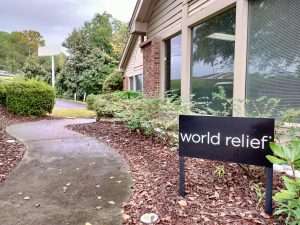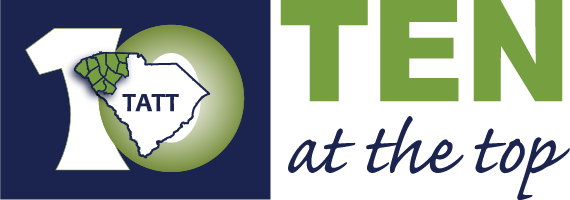 At World Relief Upstate SC, we believe in welcoming and loving refugees and immigrants in the Upstate as our own and are eager to show hospitality to strangers from all backgrounds and countries. Part of a nationwide network of resettlement offices, we opened our doors in Greenville in 2015. Since that time, and in partnership with churches and other organizations, we have welcomed over 500 refugees to the Upstate. We have seen an increasingly diverse group of refugees coming through our office, with seven different countries represented in our resettlement numbers over the last three months alone. Most recently, we have had the opportunity to welcome a small number of Afghan families to the Upstate for the first time. While the Afghan crisis is arguably the most urgent, it highlights a broader refugee crisis in which over 27 million individuals have been forced from their homes. This is the highest number of displaced people since the end of World War II.
At World Relief Upstate SC, we believe in welcoming and loving refugees and immigrants in the Upstate as our own and are eager to show hospitality to strangers from all backgrounds and countries. Part of a nationwide network of resettlement offices, we opened our doors in Greenville in 2015. Since that time, and in partnership with churches and other organizations, we have welcomed over 500 refugees to the Upstate. We have seen an increasingly diverse group of refugees coming through our office, with seven different countries represented in our resettlement numbers over the last three months alone. Most recently, we have had the opportunity to welcome a small number of Afghan families to the Upstate for the first time. While the Afghan crisis is arguably the most urgent, it highlights a broader refugee crisis in which over 27 million individuals have been forced from their homes. This is the highest number of displaced people since the end of World War II.
 These displaced people are refugees who had to flee their home country due to a well-founded fear of persecution for their faith, ethnicity, or other element of their identity. These are individuals who spend years waiting in transitional countries, such as refugee camps or neighboring cities, while the UNHCR and US Government conduct extensive vetting, including biometric checks, interviews, and health screenings. We recently welcomed four families from the Democratic Republic of Congo who had spent an average of 16 years in refugee camps waiting for the chance to start a new life. Many of the children have only ever known life in a refugee camp. After this waiting process, they are finally invited by the US Government to start a new life in the Upstate, and that is when we step in. Even before welcoming these families at the airport, we set to work in three primary areas: resettlement, employment, and education.
These displaced people are refugees who had to flee their home country due to a well-founded fear of persecution for their faith, ethnicity, or other element of their identity. These are individuals who spend years waiting in transitional countries, such as refugee camps or neighboring cities, while the UNHCR and US Government conduct extensive vetting, including biometric checks, interviews, and health screenings. We recently welcomed four families from the Democratic Republic of Congo who had spent an average of 16 years in refugee camps waiting for the chance to start a new life. Many of the children have only ever known life in a refugee camp. After this waiting process, they are finally invited by the US Government to start a new life in the Upstate, and that is when we step in. Even before welcoming these families at the airport, we set to work in three primary areas: resettlement, employment, and education.
 Resettlement
Resettlement
Over the past three months alone, our resettlement team has provided direct services to nearly 70 refugees. Through their work, we are able to help families and individuals secure affordable housing, apply for government benefits, obtain initial food and furnishings, and access appropriate healthcare. Through this support, our new neighbors are able to find their bearings and begin planning for a self-sufficient future.
 Employment
Employment
We have also built up a network of local business partners, connecting refugees with job opportunities that align with their background. Not only does this allow for refugees to work and provide for their families, it is also helping meet a significant staff shortage in multiple sectors. For example, we recently established a partnership with SC Works and the Upstate Workforce Board to enroll our clients in a Russian-speaking Commercial Driver’s License (CDL) training program. We are proud of four participants so far who have earned their CDL through this collaboration and are able to start a new career.
 Education
Education
With over 60% of our recent arrivals being under the age of 18, we have been reminded of how important successful integration into the local school system is for the families we serve. Through our School Impact Program, over 30 refugee children have been connected with local schools in the Upstate since the beginning of the school year. By working directly with parents, students, and teachers, we are able to ensure each child receives the support they need to thrive academically and socially in their new schools.
 We do not do this work alone, however. This is a community effort, and we have been so encouraged by the outpouring of support from businesses, churches, schools, and individuals over the past year. This was most recently highlighted when over 50 individuals and 10 organizations contributed to our Welcome Home Campaign in support of Afghans, Sudanese, Congolese, Ukrainians, and other nationalities who are making a new home in the Upstate. Together, we can create a community of welcome.
We do not do this work alone, however. This is a community effort, and we have been so encouraged by the outpouring of support from businesses, churches, schools, and individuals over the past year. This was most recently highlighted when over 50 individuals and 10 organizations contributed to our Welcome Home Campaign in support of Afghans, Sudanese, Congolese, Ukrainians, and other nationalities who are making a new home in the Upstate. Together, we can create a community of welcome.
World Relief Upstate SC
Office Director
